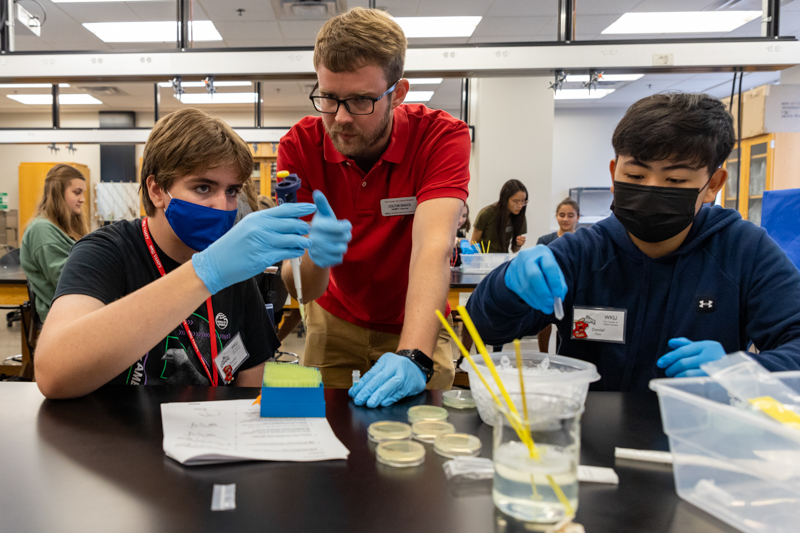By the Duke University Talent Identification Program
The parent-teacher conference is a unique opportunity to gain a fresh perspective on your child’s progress in school and to share your parental insights with the teacher. You will want to use this limited time to its best advantage.
Prepare for the conference well ahead of time. First, contact the school district’s director of exceptional education to request the philosophy statement (or rules, regulations, and parameters) for gifted education. From this statement you can loosely determine whether your child’s gifted needs are being met.
Next, think about the topics and questions you would like to discuss at the conference. Some questions may be academic, for example, “Does informal, diagnostic assessment routinely take place in the classroom across the subject areas?” Such assessment will show the teacher which skills have been mastered by individual students, so he or she can plan the curriculum accordingly. Other likely questions are, “What accommodations are in place for students who have mastered specific content?” and, “Is additional work challenging, or a review of what has already been mastered?” Plan to frame each question as an entrée to discussion rather than a demand for a direct response.
Cultivating the partnership between yourself and your child’s teacher can only benefit your child.
You may also want to discuss how your child interacts with peers, what the teacher perceives as your child’s strengths and weaknesses, and whether your child is usually prepared and motivated to work throughout the day. Prioritizing your ideas will ensure that the key points are addressed.
Arrive for the conference promptly. Listen carefully to what the teacher has to say and take notes. Set a cordial tone with positive initial remarks, for example, “Barry is enjoying the unit on American heroes.” Bear in mind that many gifted children are taught by able teachers who are not specially trained in gifted education. If this is true of your child’s teacher, you may want to introduce him or her to the information you obtained from the district office before you discuss interpretations of it. In addition, bring an informative book or article on gifted education that you have come across to share with the teacher.
Foster the partnership between your child’s teacher and yourself and present each of your concerns with a possible solution in a friendly, nonthreatening manner. Instead of stating, “My daughter is bored by math this semester. What can you do?” consider a positive approach: “Karen has a good grasp of algebra from math camp this summer. Perhaps she can create some practice tests on her own as a reinforcement.” Strive to see ideas from a variety of perspectives: the teacher’s, the other students’, and your child’s as well as your own.
If specific follow-up points are discussed during this meeting, you may want to schedule another one. Keep in mind that you and the teacher can communicate via e-mail, phone, or letter if meeting face-to-face is not convenient. If you think it appropriate, introduce the book or article you brought for the teacher to read at his or her leisure.
To document the meeting, send a note of thanks listing any points you want to confirm (“My understanding is that Stacy will . . .”) and any follow-up details you discussed. Keep a copy of the note and all other conference materials in a single file. Add to the file throughout the school year, and it will be a breeze to prepare for your next parent-teacher conference.
—Susan Ludwig, MA
Susan Ludwig is a teacher and freelance writer who holds a master’s degree in educational leadership, with an emphasis in exceptional student education, from Florida Atlantic University.
This article was originally published in Gifted Today and is used with permission.

